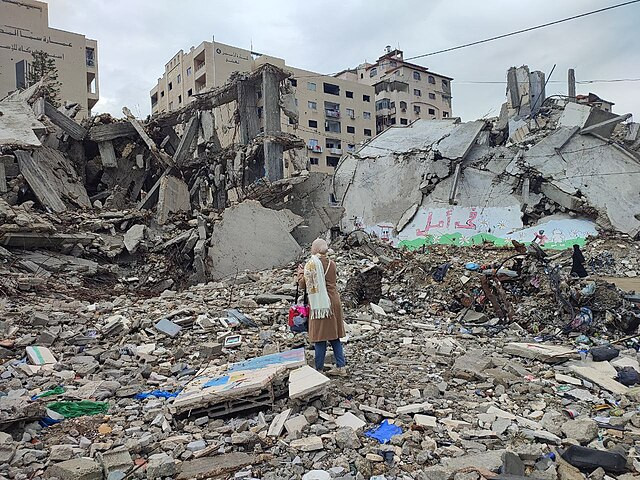The United States on Wednesday vetoed a United Nations Security Council resolution calling for an "immediate, unconditional and permanent ceasefire" in Gaza, leaving it as the sole vote against the measure while all 14 other council members, including key allies such as the United Kingdom and France, voted in favor.
U.S. Ambassador to the United Nations Dorothy Shea said the resolution failed to meet American demands that Hamas disarm and exit Gaza. "The United States has been clear: we would not support any measure that fails to condemn Hamas and does not call for Hamas to disarm and leave Gaza," Shea stated. She called the resolution "unacceptable" and criticized the process as "shameful," saying it appeared "designed to draw a veto."
The resolution, co-sponsored by 10 nations and backed by permanent members China, France, Russia, and the UK, also demanded the release of all hostages and the unrestricted entry of humanitarian aid into Gaza. The UK supported the measure, with its UN Ambassador Barbara Woodward citing the "intolerable situation in Gaza" and denouncing Israel's military actions and aid restrictions as "unjustifiable, disproportionate, and counterproductive."
Hamas quickly condemned the U.S. veto, calling it an "arrogant stance" and accusing the Biden and Trump administrations of consistently backing Israel despite alleged violations of international law. "We vehemently denounce how the U.S. administration has defied the will of the entire international community," Hamas said in a statement, calling the veto a rejection of "any global effort to stop Palestinian bloodshed."
Basem Naim, a senior Hamas political bureau member, said the veto "confirms that American bias in favor of Israel is a consistent policy," and argued that "this American behavior is shameful and reprehensible."
Israeli officials welcomed the move. Foreign Minister Gideon Sa'ar praised President Donald Trump and the U.S. for vetoing what he called a "one-sided resolution," adding, "The proposed resolution only strengthens Hamas and undermines American efforts to achieve a hostage deal."
Israeli Prime Minister Benjamin Netanyahu thanked the U.S. "for once again showing our enemies that there is no daylight between us," writing on X that this unity was essential "to destroy the Hamas terrorists who are still holding 58 innocent hostages."
At the UN, Israeli envoy Danny Danon stated: "Thank you for refusing to abandon the hostages and for refusing to legitimize the lies of this resolution." He argued the message sent by the failed resolution would have been to "reward" Hamas for rejecting ceasefire proposals and holding civilians hostage.
In Gaza, violence continued to escalate. Israel has intensified its offensive under "Operation Gideon's Chariot," aimed at dismantling Hamas and rescuing hostages. The Gaza Health Ministry reported more than 54,600 deaths since the war began, most of them women and children. The IDF has confirmed 420 military fatalities during ground operations.
The conflict was sparked by Hamas's surprise October 7, 2023, assault on Israel, which Israeli officials say killed approximately 1,200 people and led to the capture of 251 hostages. Israel's counteroffensive has since led to one of the deadliest periods in the region's history.
U.S. Secretary of State Marco Rubio defended the veto, calling it a "strong message" against a "counterproductive UN Security Council resolution on Gaza targeting Israel." He added, "The United States will never stop working to free all the hostages."
Palestinian officials responded with fury. Nabil Abu Rudeina, spokesperson for Palestinian Authority President Mahmoud Abbas, said the veto "perpetuates instability and insecurity." Riyad Mansour, Palestinian envoy to the UN, announced plans to take the resolution to the General Assembly, stating, "What can stop this genocide are immediate and real measures by states to deter Israel."





